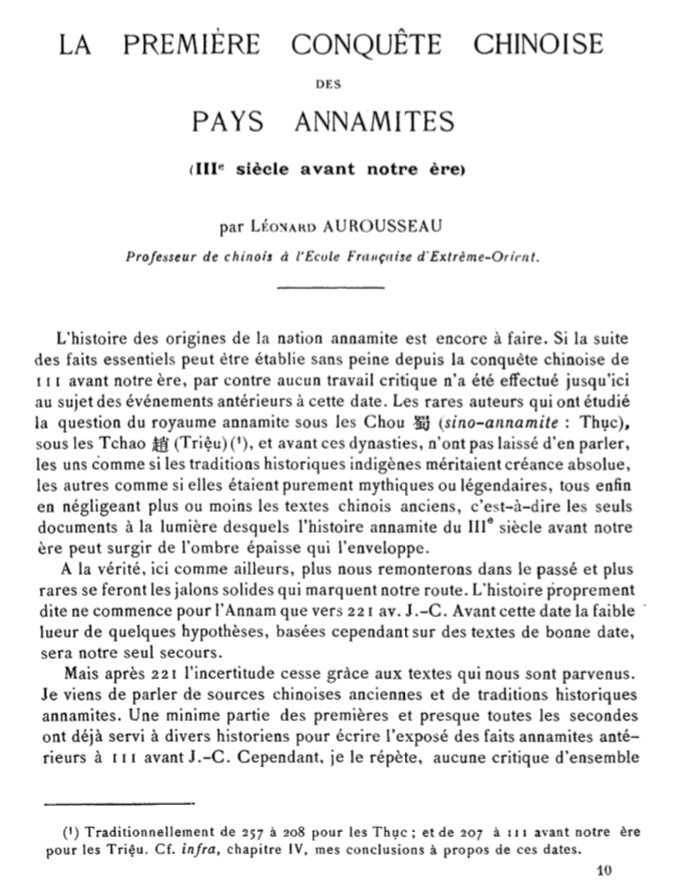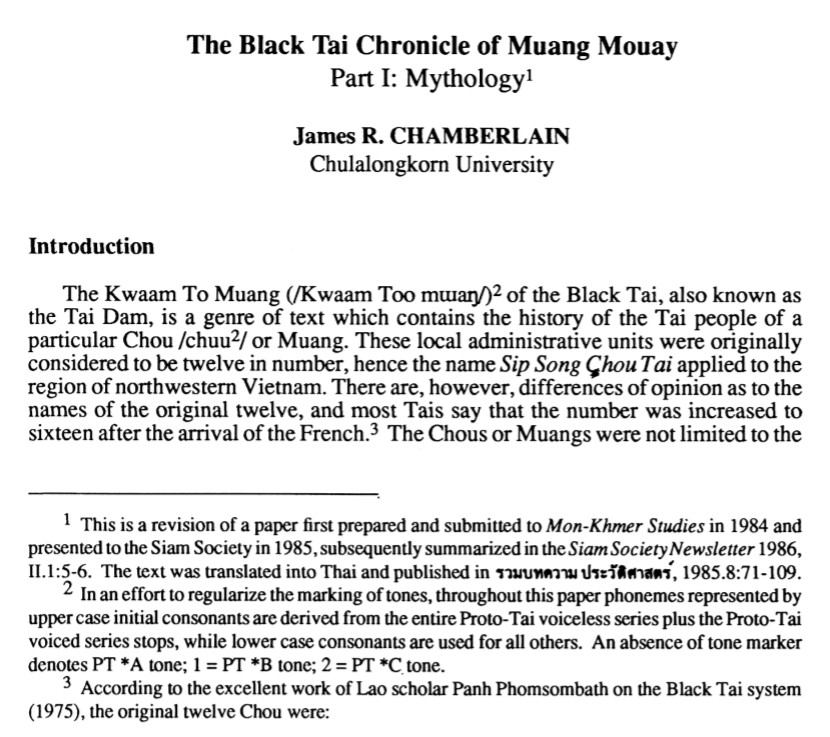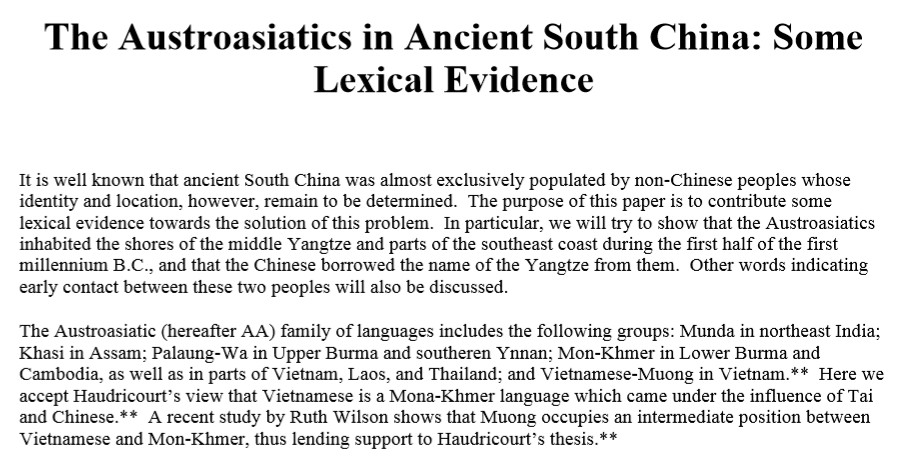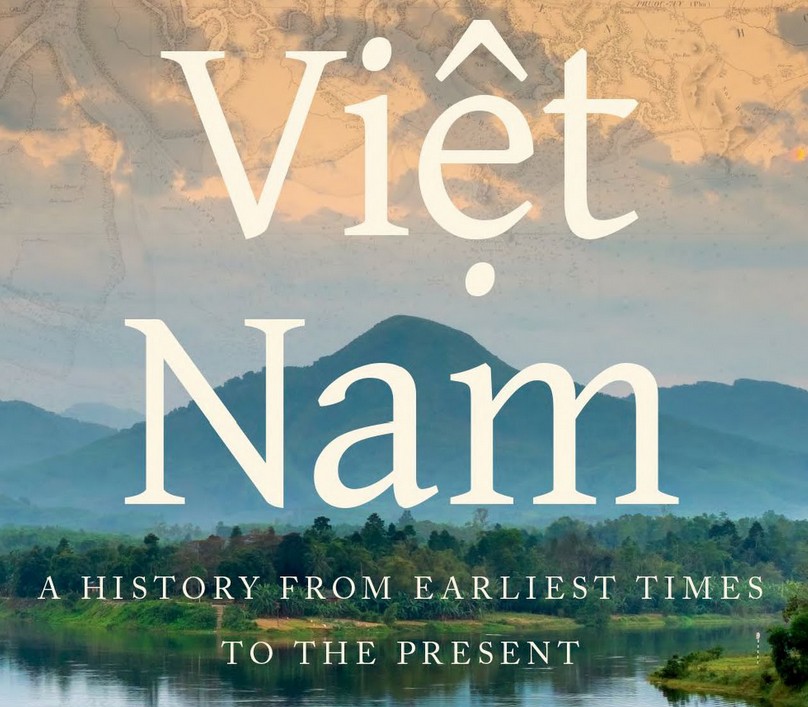Not all scholarship is equal. There are books and articles that get published that are flawed. Part of the job of a scholar is to gain an understanding of which scholarship is reliable and which scholarship isn’t.
When Keith Taylor researched and wrote his first book, The Birth of Vietnam, he came to realize that the ideas of French scholar Leonard Aurousseau were flawed. In 1923 Aurousseau had written an article that argued that there had been a southward migration of “Yue” peoples in the first millennium BCE from the area of what is today Zhejiang Province in China to the Red River Delta in Vietnam.
Taylor didn’t refute the logic of Aurousseau’s argument (that is, he did not challenge the way that Aurousseau had argued this point), but he did reject the idea that an entire population of people had migrated southward.
In an appendix to his book called “The Yue Migration Theory,” Taylor argued that the origins of the Vietnamese people is in Vietnam, but that it was possible that some “ruling-class people” had migrated southward into the Red River Delta. (315)
In other words, he accepted that some people might have migrated into the Red River Delta, but not a branch of “the Yue people” as Aurousseau had argued.

So Taylor realized that Aurousseau’s ideas were flawed. However, some of Taylor’s own ideas in that book were also flawed. The first chapter presents a very (Vietnamese) nationalistic introduction to the early history of the Red River Delta, one which argues that a distinct Vietnamese culture formed in the first millennium BCE and then persisted through time.
In making this argument, Taylor uncritically used stories that were created in the fifteenth century and combined those with nationalistic scholarship from twentieth-century Vietnam to present a story of more or less a timeless Vietnamese culture and identity that “survived” 1,000 years of Chinese rule.
Scholars in North America today no longer believe such a version of Vietnamese history. Indeed, Taylor himself no longer believes such a version of Vietnamese history, and in his new survey of Vietnamese history he only briefly mentions the history of Vietnam prior to the time of Chinese contact.
That said, there are still parts of The Birth of Vietnam, that are reliable, but the first chapter is not.

There is a linguist by the name of James R. Chamberlain who has written a lot about Tai historical linguistics. In doing so, Chamberlain at times relied heavily on Keith Taylor’s The Birth of Vietnam.
Chamberlain tried, for instance, to see if information about the (mythical) Hùng Kings is reflected in stories that Tai-speaking peoples maintained.
This scholarship, however, is flawed because the information from Taylor’s book that it relies on is flawed.

In 1976, linguists Jerry Norman and Tsu-lin Mei argued that Austro-Asiatic languages were once spoken in southern China.
This article was very influential, but in 2008 linguist Laurent Sagart provided counter evidence that seriously undermined the claims made by Norman and Mei.
So now we can now no longer cite the examples that Norman and Mei as “fact” because there is counter-evidence that (potentially) discredits them.

If one wants to write about early Vietnam, these are all things that one needs to know. However, from reading Ben Kiernan’s Việt Nam: A History from Earliest Times to the Present, it is clear that he is not aware of how the field of Vietnamese history has developed over time as all of this outdated scholarship has “returned.”
Aurousseau’s “Yue Migration Theory” has returned. The first chapter of Taylor’s The Birth of Vietnam has returned. The scholarship of James R. Chamberlain has returned. And Norman and Mei’s article has returned.
In what follows, I will address these issues and others in a series that I will call “Going Backwards.”

